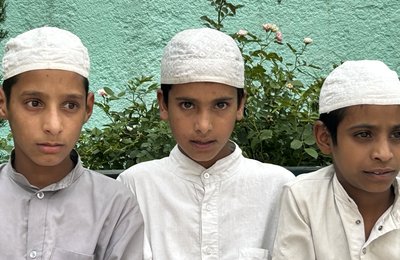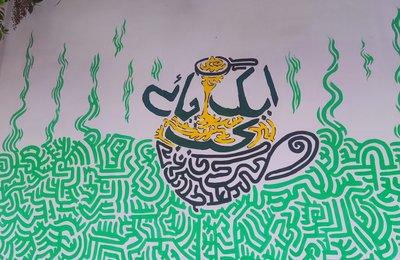Lotus Kenya Action for Development organization (LOKADO) operates in the Oropoi and Kakuma divisions in the semi arid parts of north western Kenya bordering Uganda. LOKADO was founded in 2003 in order to address the area's problems, including cross-border conflict and acute poverty and illiteracy. It aims to help promote socio-economic justice and inter-community tolerance, to generate meaningful development.
Its areas of work include:
- Cross border "Sports for Peace". The programme works to reform hostile warriors from the common borders of Kenya, Uganda and South Sudan through sports. LOKADO has successfully conducted cross border sports events in both countries, leading to warriors abandoning cattle rustling. More than 350 youth from different regions annually converge for a tournament, promoting their sense of brotherhood and the common message of peace.
- Cross border trauma healing and social reconciliation. Pact Kenya supported LOKADO in implementing a post conflict rehabilitation programme. The project targeted those affected by conflict along the border of Kenya and Uganda, bringing together members of their respective Turkana and Tepeth communities. They embraced forgiveness and education for their children as a way of breaking the trauma cycle which has been experienced by communities for successive generaetions. Cross border trade has flourished, in particular the sale of myrrh, goats and cows. More than 200 pastoralists.
- Governance. Through support from Oxfam, LOKADO implements a governance program in Turkana county that aims at forming grass root advocacy structures, speaking on behalf of the community and tracking public funds allocated to the county. So far the programme has recruited 900 citizen members.
- Community managed disaster risk reduction. The program offers skills and support for the establishment of alternative livelihoods for pastoralists, helping them mitigate the effects of changing climate and weather patterns which have severely affected cattle rearing.
Building trust
There has been an increasing level of trust among the Turkana people of Kenya and the Jie of Uganda. This is shown by the establishment joint livestock camps, or kraals, particularly in Uganda's Kotido region, since 2011.
Increasing governmental commitment
There has been an improvement in the level of commitment from the relevant regional governments. Intensified border patrols, and the tracking, impounding and returning of stolen livestock demonstrates the way in which more physical resources are being allocated to the area.
Empowering local communities
Communities have acknowledged that they must help to provide peace and security themselves. They have established border villages to provide better monitoring and surveillance. Reformed youth warriors patrol and provide early warning information, and inform other local structures in order to respond. This activity has attracted increased funding and work opportunities, as annual repairs are carried out to repair roads linking one village to another.
Lobbying and advocacy
There are continued efforts to narrow the gap between the local and international decision making levels in the region. Some activities organised by LOKADO have received local and national media coverage, for example public meetings in Lokichoggio and Kalobeyei on the proliferation of small arms and light weapons, which have beencovered by Kenyan news channels KTN and NTV. This has also helped promote other programmes, such as the Peace and Sports initiative, with reformed fighters able to present the work and discuss its benefits.
Cross-border conflicts, cross-border solutions
Since the start of the project, relative peace has been achieved across the common borders of Kenya, Uganda and South Sudan. Deaths associated with cattle raiding have decreased, and the sharing of information has increased. Interactions between warring communities have improved, with the opening of new markets along the common border and communities engaging in small business projects together. LOKADO continues to work to improve the lives of and reduce conflict among Kenyan-Ugandan communities.





